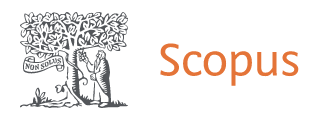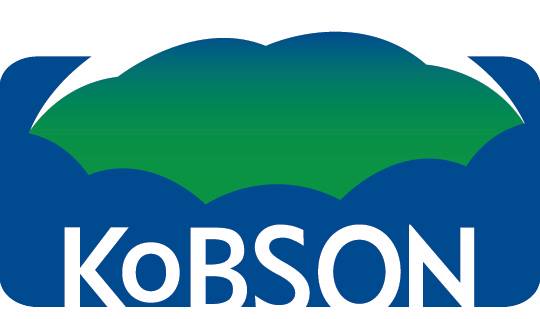DOI: 10.5937/jaes18-23624
This is an open access article distributed under the CC BY-NC-ND 4.0 terms and conditions.

Volume 18 article 659 pages: 55 - 63
Navigation in archipelagos and shallow waters is considered dangerous. Although islands, reefs, and shallows can be properly marked by lights and other navigation aids, skippers and other non-professional navigators usually do not have sufficient experience for safe navigation. Available navigation aids such as radars, Electronic Charts Display and Information System (ECDIS), and alike are usually expensive for use on small boats and pleasure crafts. In this paper, the authors propose a new system of identifying navigation marks that would significantly reduce the possibility of maritime accidents and errors due to a wrong interpretation or invisibility of the mark. The key part of the new system proposed refers to an innovative method that identifies, delivers, and displays in a user-friendly manner those navigation marks that are relevant to skippers and other non-professional navigators, depending on their location during navigation. The proposed system would be cheaper than the professional SOLAS-approved system, and available on the web.
1. IALA. International Association of Marine Aids to Navigation and Lighthouse Authorities. (2017). IALA complementary lighthouse use manual. https://www.iala-aism.org/product-category/publications/manuals/ Accessed 12 February 2019.
2. ILO. International Labour Organization. (2015). Seafarer Medical Fitness Standards - Anex I. http://www.lycee-maritime-ciboure.fr/files/Medical_standards_for_fitness_at_sea.pdf. Accessed 12 February 2019.
3 .IHO. International Hydrographic Organization. (2010). Facts about Electronic Charts and Carriage Requirements. https://iho.int/iho_pubs/standard/S-66/S-66_e1.0.0_EN.pdf. Accessed 12 February 2019.
4. IMO. International Maritime Organization. (1995). Resolution A.817(19). Performance standards for Electronic Chart Display and Information Systems (ECDIS). London: IMO. http://www.imo.org/en/KnowledgeCentre/IndexofIMOResolutions/Assembly/Documents/A.817%2819%29.pdf. Accessed 12 February 2019.
5. SOLAS. International Convention for the Safety of Life at Sea, 1974. (2014). Chapter 5, Annex 3. Nautical Charts and Publications. Consolidated Edition 2014.
6. MAIB. Marine Accident Investigation Branch. (2009). Pride of Canter-bury Grounding Report. http://www.maib.gov.uk.
7. MAIB. Marine Accident Investigation Branch. (2012). CSL Thames Grounding Report. http://www.maib.gov.uk/ Accessed 12 February 2019.
8. Vidan, P. (2010). The model of increasing of safety on inland waterways. Doctoral thesis, Faculty of Traffic Sciences, Zagreb, 2010.
9. Movable Type Scripts. (2019). Calculate distance, bearing and more between Latitude/Longitude points. https://www.movable-type.co.uk/scripts/latlong.html. Accessed 12 February 2019.
10. Rosetta Code. (2016). Haversine formula. https://rosettacode.org/wiki/Haversine_formula. Accessed 12 February 2019.
11. Math Insight. (2019). Cartesian coordinates. https://mathinsight.org/cartesian_coordinates. Accessed 12 February 2019.
12. NIMA. National Imagery and Mapping Agency. (2000). Department of Defense World Geodetic System 1984: Its Definition and Relationships with Local Geodetic Systems. http://earth-info.nga.mil/GandG/publications/tr8350.2/wgs84fin.pdf. Accessed 12 February 2019.
13. Gratneer, C.E. (2017). How to Find Euclidean Distance. https://sciencing.com/euclidean-distance-7829754.html. Accessed 12 February 2019.
14. ArcGIS Resource Center. (2018). Coordinate systems, map projections, and geographic (datum) transformations. http://resources.esri.com/help/9.3/ArcGISengine/dotnet/89b720a5-7339-44b0-8b58-0f5bf2843393.htm. Accessed 12 December 2018.
15. Department of Geography. (2018). The UTM Grid and Transverse Mercator Projection. The Pennsylvania State University 2018. https://www.maptools.com/tutorials/grid_zone_details. Accessed 12 February 2019.
16. Map Tools. (2019). More details about UTM Grid Zones. https://www.maptools.com/tutorials/grid_zone_details. Accessed 12 December 2018.
17. BSU. Federal Bureau of Maritime Casualty Investigation. (2009). LT Cortesia Grounding Report. http://www.bsu-bund.de/EN. Accessed 12 December 2018.
18. BEA. French Marine Accident Investigation Office. (2010). Sischem Osprey Stranding Report. https://www.google.hr/url?sa=t&rct=j&q=&esrc=s&source=web&cd=1&ved=2ahUKEwil0IvI33gAhWNjqQKHe2XAY4QFjAAegQIARAC&url=https%3A%2F%2Fwww.nautinst.org%2Fdownload.cfm%3Fdocid%3DF9DA081F-6C1E-40F0 A71F0A89B10F426C&usg=AOvVaw0d8BHGV2inL5CQBiDwvfG2. Accessed 12 December 2018.







